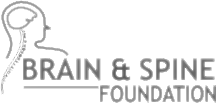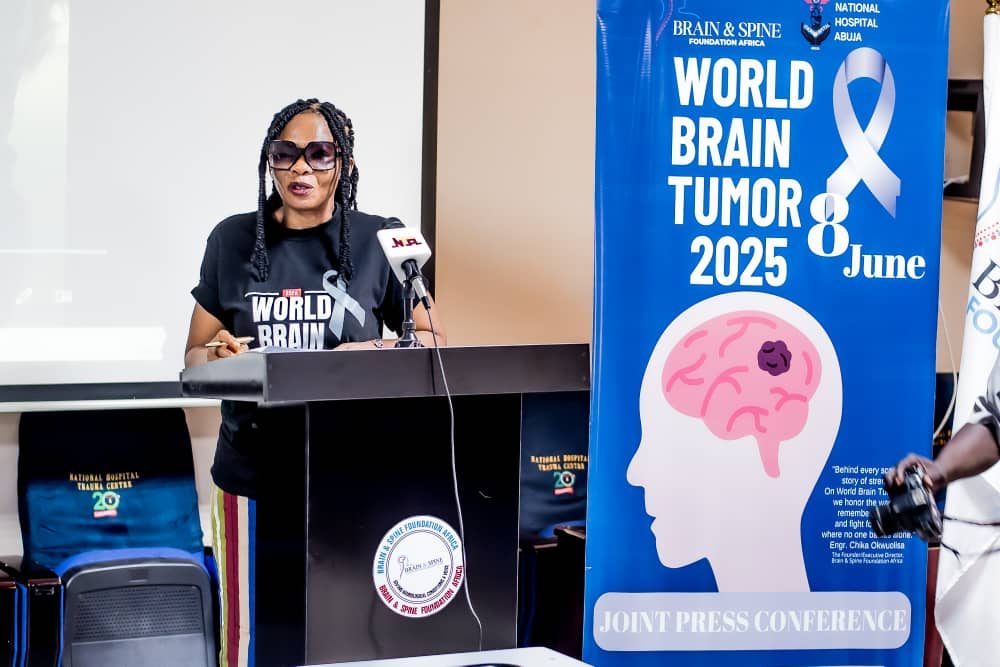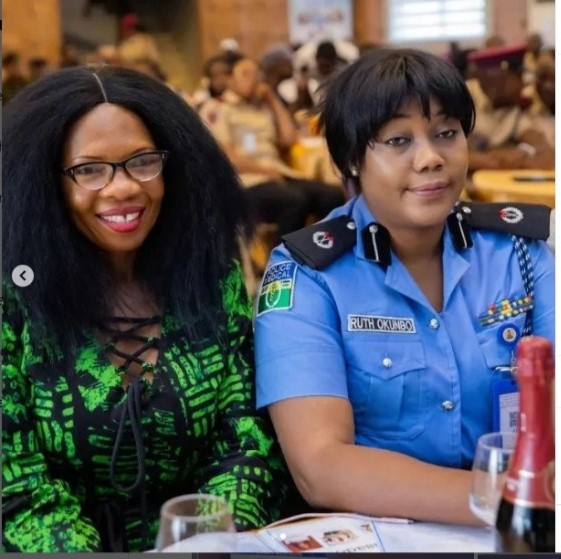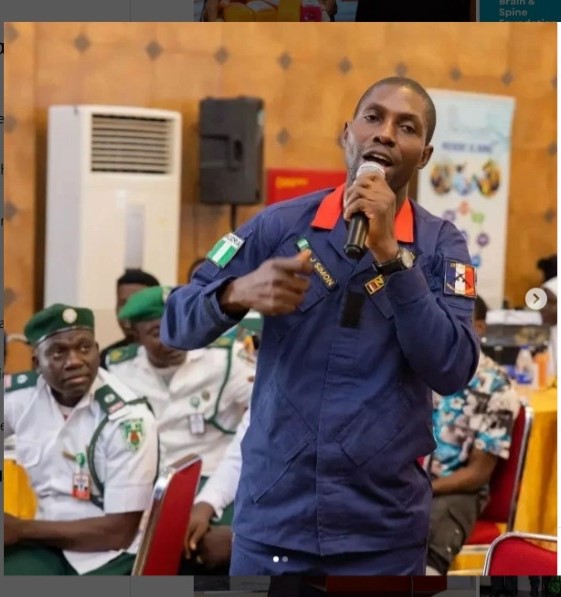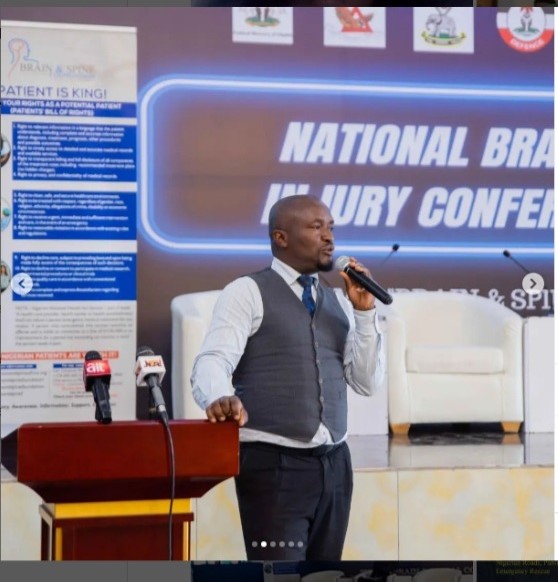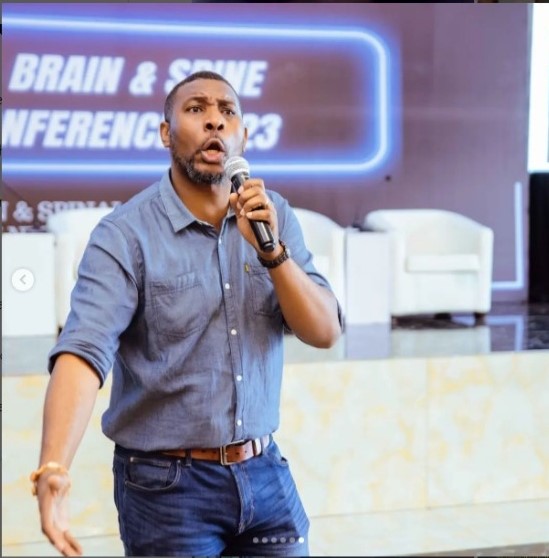2025 World Brain Tumor Day Joint Press Conference: Innovate, Support; Advancing brain Health For All
To commemorate World Brain Tumor Day 2025, Brain and Spine Foundation Africa, in partnership with the National Hospital Abuja, held a joint press conference on June 8, 2025, at the Conference Hall of the National Hospital. The event featured notable stakeholders including Dr. Uthman Uthman, a neurosurgeon at the National Hospital who spoke on behalf of Senior Consultant Neurosurgeon Dr. Mansur Idris, and Ekeinyi Adedayo, a senior oncology nurse. Representatives from major media organizations such as the Nigeria Television Authority (NTA), Africa Independent Television (AIT), Federal Radio Corporation of Nigeria (FRCN), News Agency of Nigeria (NAN), The SUN, and The Nation Newspaper were also in attendance.
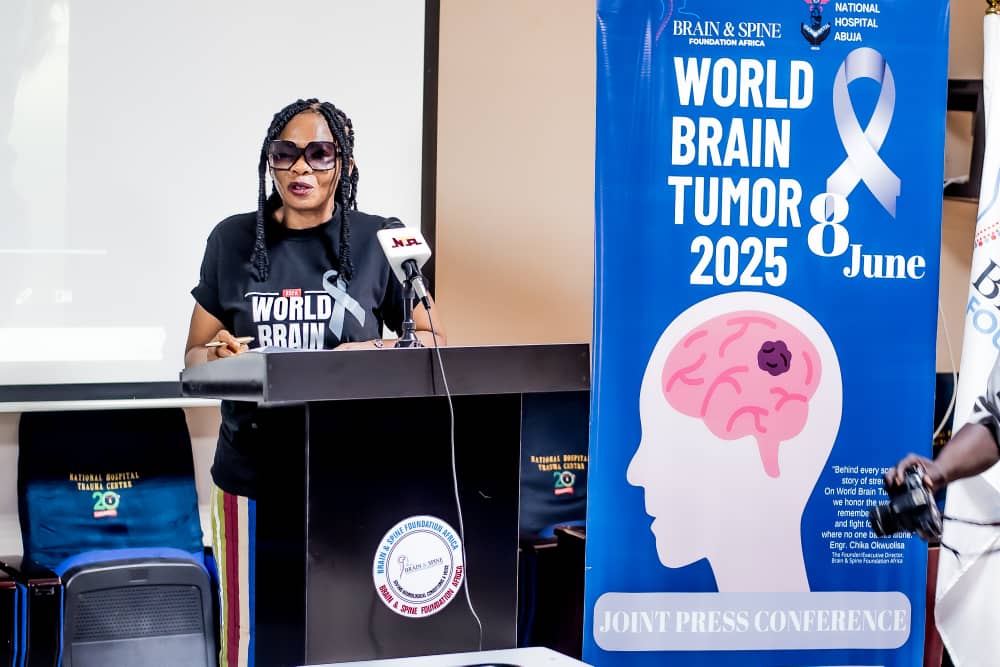
Executive Director of Brain and Spine Foundation Africa, Chika Okwuolisa said brain tumour and neurological diseases had become a silent national crisis.
“Brain tumour is in a world of its own. Without information, patients are disempowered and caregivers are helpless. Our healthcare system is not yet designed to accommodate the financial and emotional weight that these conditions impose on families,” she said.
She recounted her own experience supporting her sister’s treatment and how she had to beg from house to house to raise funds. “I have lived through the nightmare. It was like walking through death itself. That’s why we need the government to step in. This should not be a private struggle.”
She called for a national brain health policy that will scale up public education, expand access to diagnosis, train more neuro-specialists and equip hospitals with advanced neurosurgical tools.
“Brain health must be brought to the centre of national health planning just like cancer. These are equally devastating diseases. Brain health can no longer be sidelined. It is a public health emergency that demands urgent and sustained intervention from the government, health institutions, and society at large.
“It’s time we stop treating brain health as a luxury. It is a right, and this meeting is our way of saying enough is enough,” Okwuolisa said.
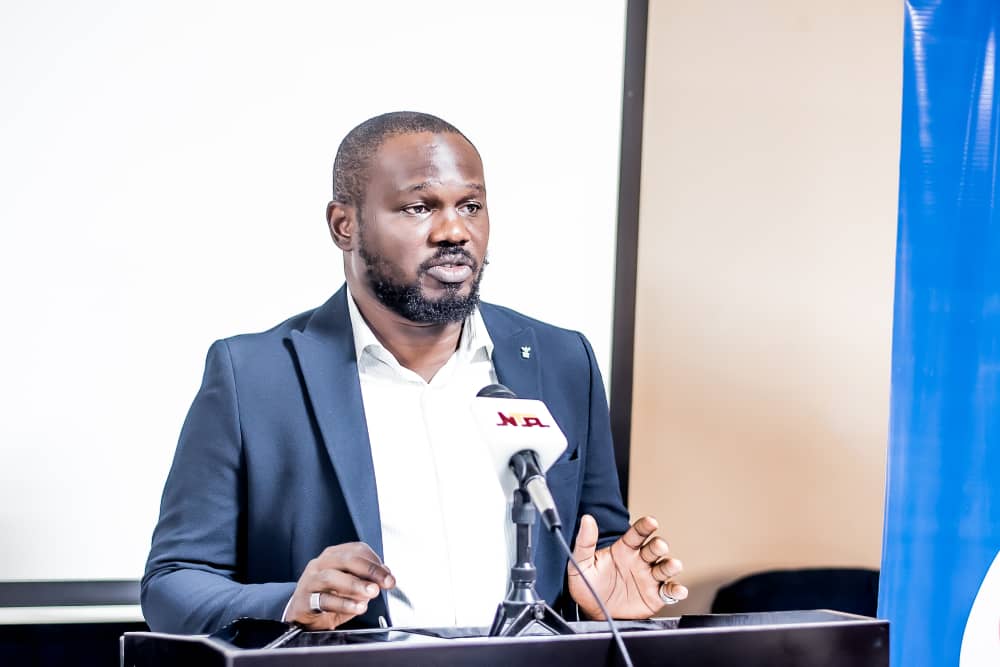
Dr. Uthman Uthman, a neurosurgeon at the National Hospital, who spoke on behalf of Senior Consultant Neurosurgeon, Dr. Mansur Idris, in his keynote address, titled, ‘Hope in the Midst of Tumour: Advances in Care and Survivorship,’ revealed that brain tumours account for up to 25 percent of all neurosurgical cases in Nigeria, cutting across all age groups.
He warned that the growing burden remains underreported due to cultural misconceptions and limited diagnostic access. “Many Nigerians associate seizures or behavioural changes with spiritual attacks. Some cases are discovered only by chance during scans for unrelated issues,” he said.
He noted that early diagnosis is critical but often missed because of low public awareness and limited access to advanced imaging tools like Magnetic Resonance Imaging (MRI).
While applauding the recent launch of high-end facilities such as the African Medical Centre of Excellence (AMCE) in Abuja, which now hosts advanced diagnostic tools like Tesla MRIs and Positron Emission Tomography (PET) scans, Dr. Uthman warned that these services remain financially inaccessible to most Nigerians.
“Diagnosis is crucial, but it is expensive. Even when part of the cost is covered by insurance, the remaining expenses often overwhelm families. Treatment involves more than just surgery. It includes radiology, pathology, oncology and in many cases, lifelong follow-up,” he said.
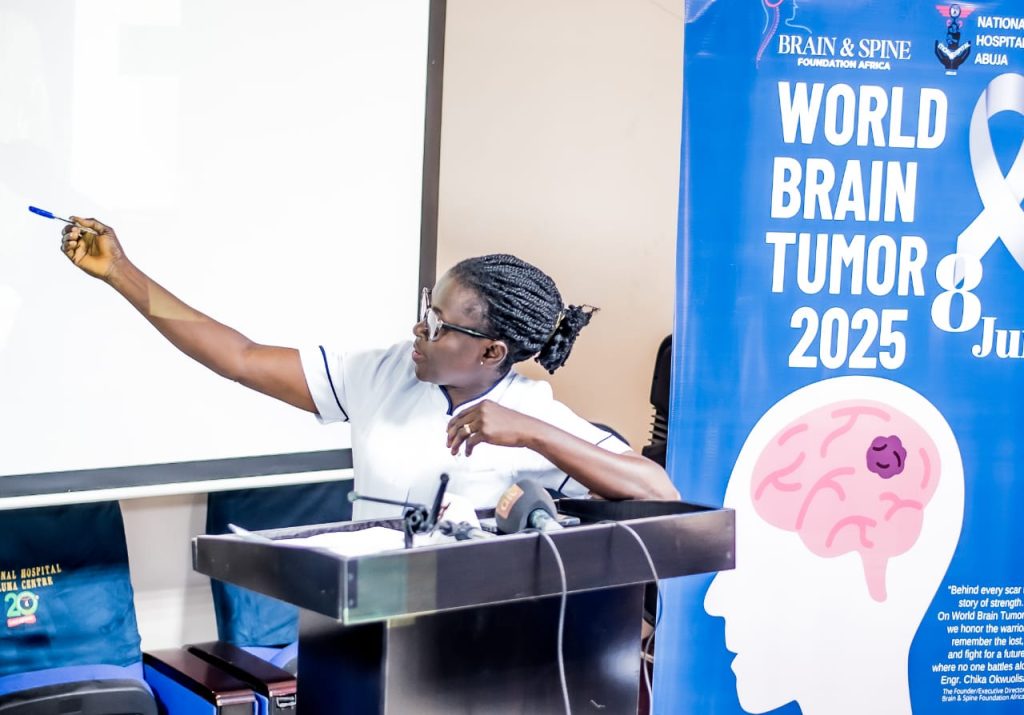
A senior oncology nurse at the National Hospital, Ekeinyi Adedayo, in an awareness talk advised Nigerians to be alert to lifestyle risks and early signs of brain tumours, particularly persistent headaches that don’t respond to treatment. “Regular check-ups and prompt medical attention can make all the difference. Prevention and early diagnosis are key,” she said.
The event also featured testimonies from survivors and caregivers.
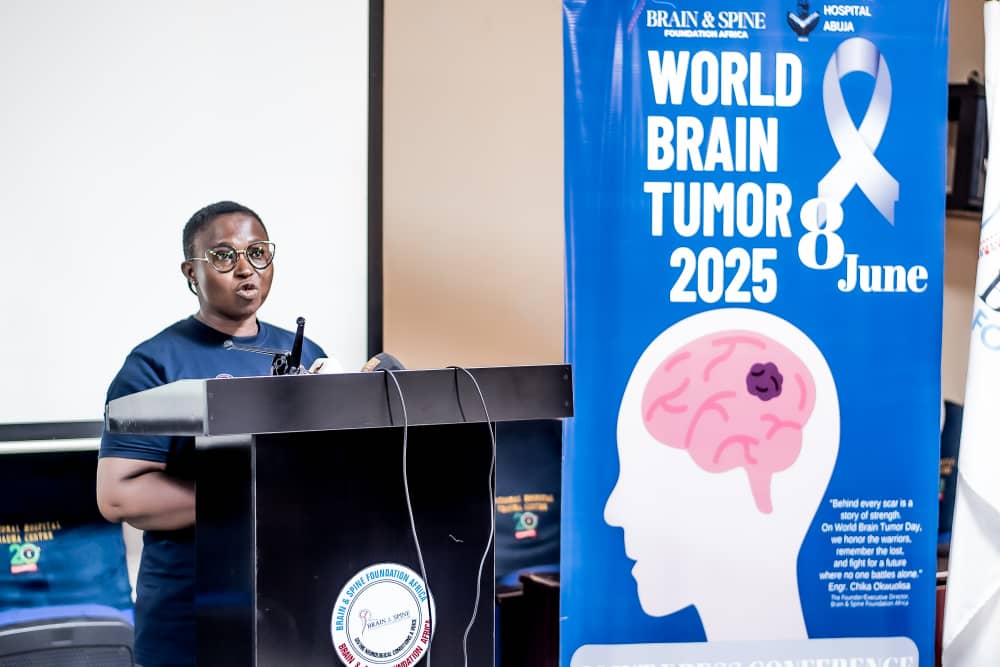
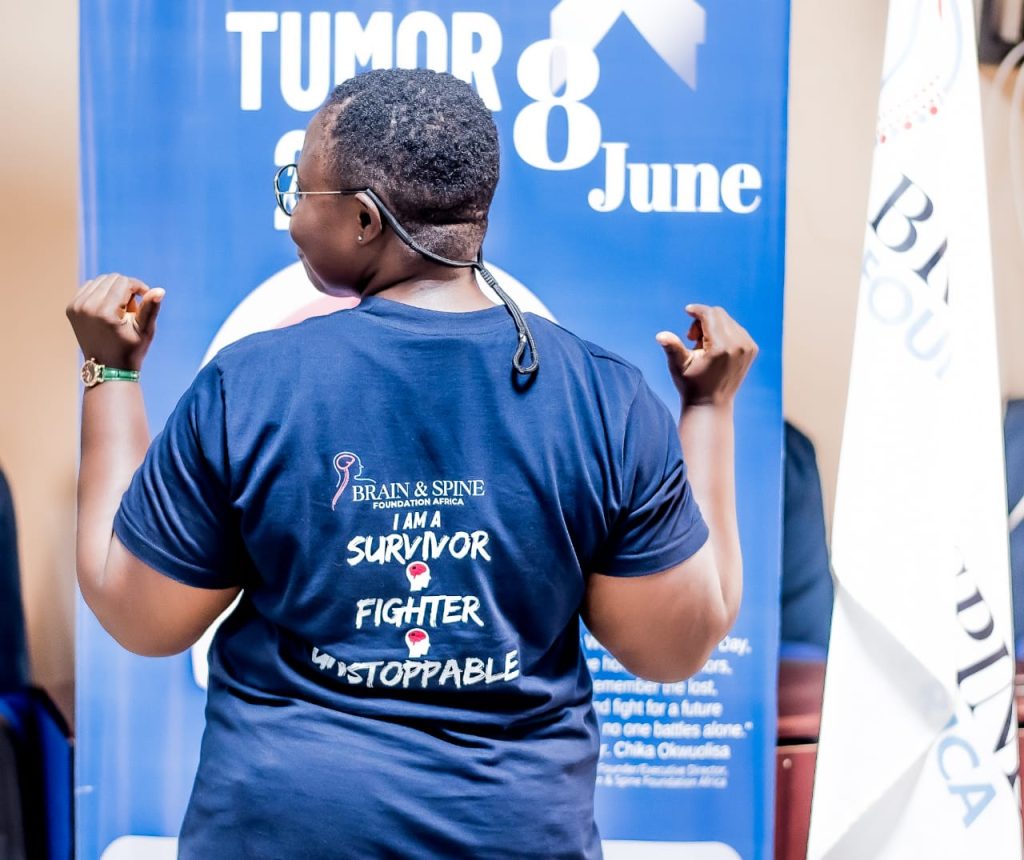
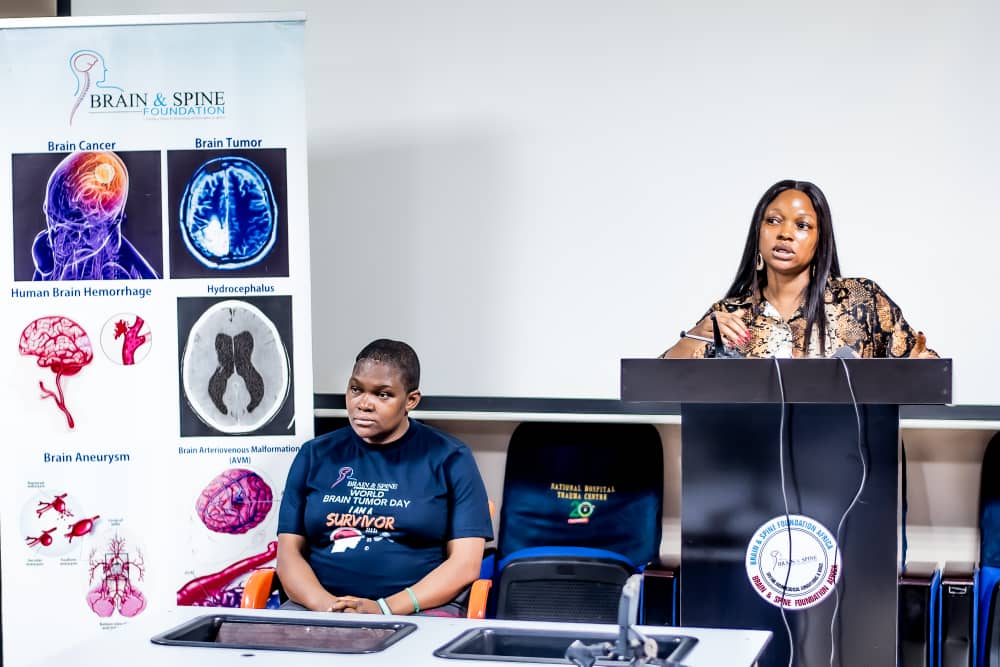
Stephanie Acka, who has cared for her sister Jessica since her diagnosis in 2021, described the immense emotional and financial burden her family has endured.
She recounted how public donations helped them raise over ₦10 million for surgery in India, but the financial pressure did not end there.
According to her, post-surgery treatment includes medications and radiation therapy, with just one injection costing N1.2 million every month for six months.
“Even for wealthy families, this is a huge cost. I’ve turned into a beggar just to keep my sister alive,” she said.

